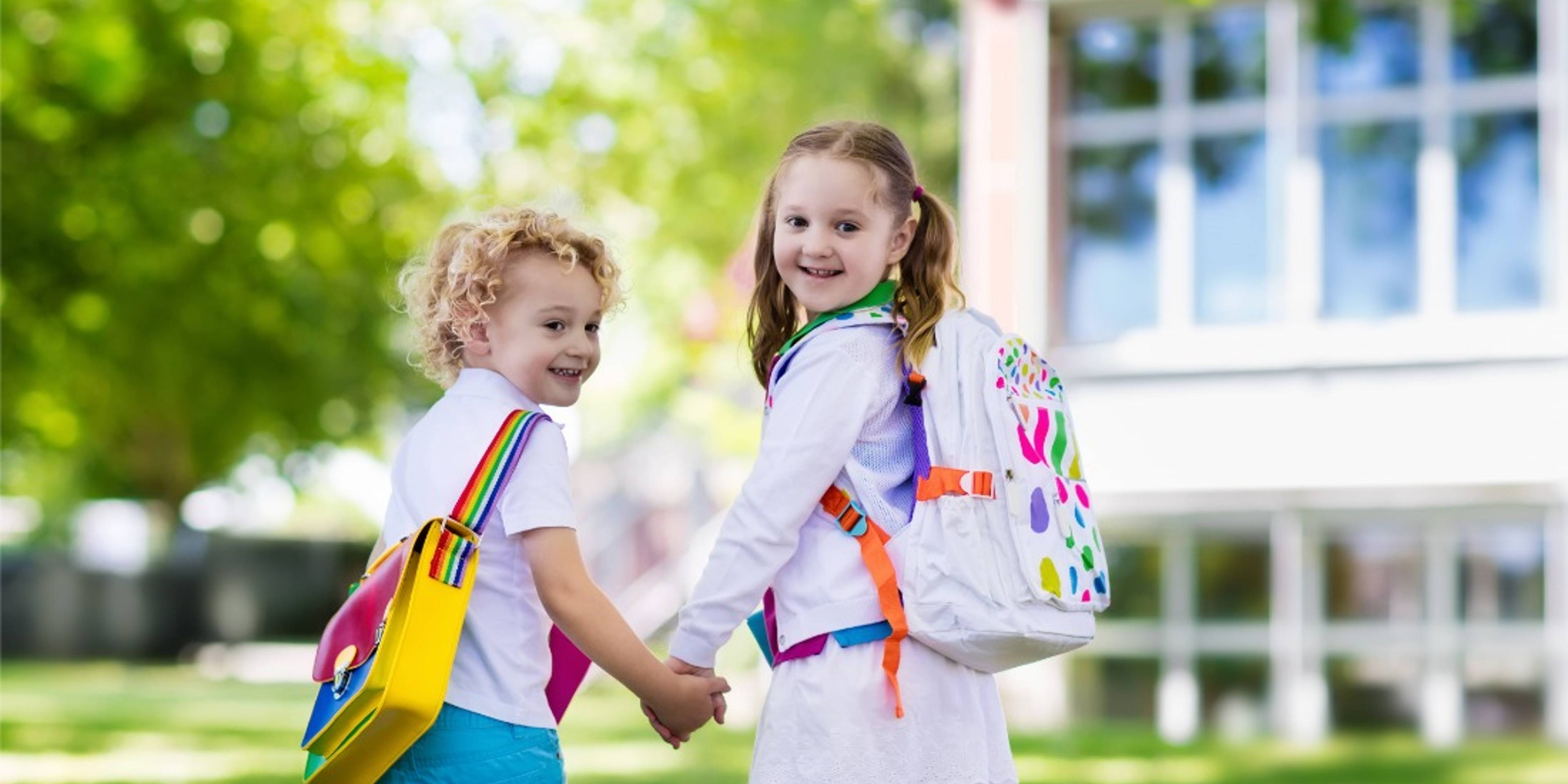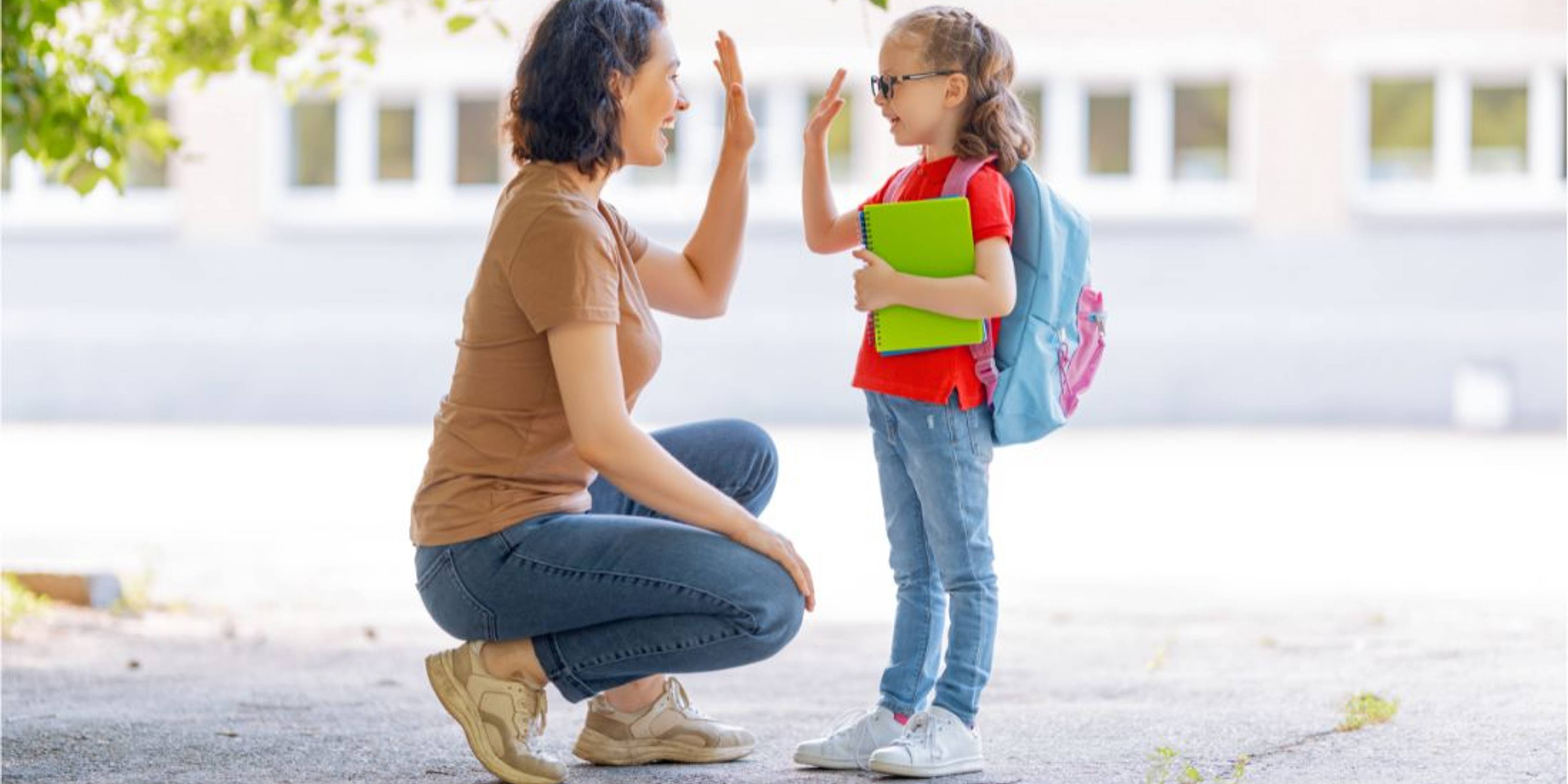September 16, 2024
How do young children’s relationships with parents and teachers impact their adjustment to school?
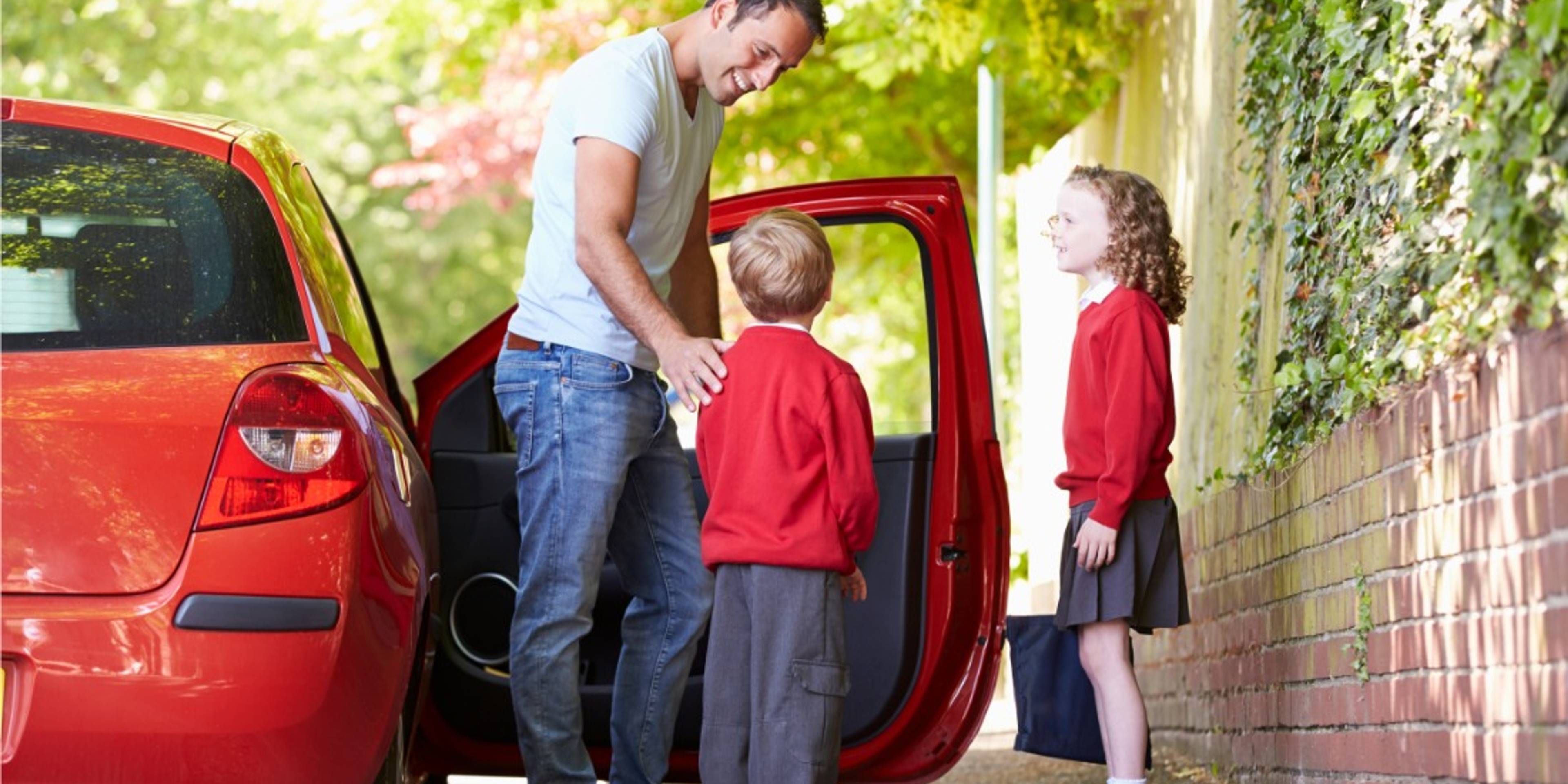
We already know that children's relationships with their parents and teachers contribute to their school adjustment and achievement, and that positive, close relationships with adults are really important for a wide variety of children’s outcomes. However, few studies have examined interactions between these relationships or sought to address the nuances of children’s experiences in terms of how different relationships have different impact or influence.
To address this, along with colleagues, our new Researcher of the Month, Dr Caoimhe Dempsey, has recently published an article which aims to examine the links between children's relationships with their mothers, fathers and teachers, and three domains of school adjustment: academic achievement, academic self-concept and behavioural adjustment in the classroom. By examining a range of data, the researchers sought to find out whether some children are more susceptible to the effects of the quality of their relationship with their teacher.
Summary
"Teacher-child relationships in the first years of school have the potential to alter pre-existing influences and set the stage for future teacher-child relationships. Early school classrooms and curriculum should acknowledge this and prioritise fostering positive teacher-child relationships."
The research uses data from the Growing Up in Ireland study. This is a nationally representative, longitudinal study of approximately 7000 children in Ireland, which has been running for over 20 years. In the study, Dr Dempsey examined the quality of child-adult relationships at ages three and five, and teachers' reports of children's behavioural adjustment and academic achievement when they were nine years old.
Data from the Growing Up in Ireland study is unusual as it uses a multi-informant approach. Whilst, due to time and resource contraints, most studies only interview one parent (and generally this is mothers) the Growing Up in Ireland study gathers data from more than one parent in each family, including both mothers and fathers. Data was also gathered via interviews and questionnaires from teachers, headteachers and children themselves.
Whilst effect sizes were not large, after controlling for numerous variables, the study concluded that positive relationships between adults and young children impact on all elements of their school experiences and on all of the dimensions examined; academic, social, emotional and behavioural outcomes. The team found that teachers can shape and shift children's future trajectories and outcomes when they have a close and positive relationships, but that they have particular impact for some children.
The study suggests that children's initial teacher relationships interact with the effects of existing conflictual or problematic relationships with their mother. For children who lack an element of closeness or stability in their relationship with their mum, forming an intimate bond with a teacher when they start school can make a positive and significant difference to their school adjustment, and a close teacher relationship appears to compensate for the risks of low mother-child closeness. For children with strong, supportive relationships at home, teachers were not found to make such significant difference, as the trajectories for these children generally tend to be good already.
However, findings were not the same for dads! Children with a conflictual relationship with their father did not see these beneficial changes from a close relationship with their teacher, and the negative effects of the relationship with their fathers lasted into middle childhood, regardless of positive work happening at school. The current study provides first evidence of the longevity of the independent effect of father relationships through to middle childhood.
The reason for this difference requires further research. Dr Dempsey and co-authors posit that it could be linked to the fact that, in Ireland, a higher proportion of primary school teachers are female (85.8%), class sizes are small (which may mean teachers take on a more maternal role) or, compared with fathers, mothers may adopt a style of interacting with children that is more similar to teachers. For example, mothers traditionally spend more time fulfilling childcare duties, which may be more akin to the duties of a primary school teachers, whereas fathers engage in more unique play activities.
The study also suggests a "ceiling effect for adult-child closeness". Experiencing one close adult relationship was found to support children's behavioural adjustment and reading achievement. Interestingly, the additional benefit of a second close adult-relationship is limited; children who experience close relationships with both mothers and teachers show comparable outcomes at age nine to children with one close maternal relationship.
Implications
Implications for schools
"Teachers' influence can either provide a close relationship that mitigates earlier risk or expose children to conflict that pushes them past the point of resilience with their prior risk factors. These findings suggest that schools should focus their attention on identifying children exposed to higher relational risk and invest in forming positive teacher-child relationships with vulnerable children at school entry."
Bring parents in. Schools should give specific consideration to hard to reach families and think about strategies that might help to break down potential emotional barriers to school involvement. Opening up breakfast clubs to parents or having teachers or the head teacher welcoming families at the school gate can make school seem a much less scary or daunting place. Strategies like this can facilitate the formation of relationships with the whole families and create an ethos of inclusivity.
Engage with all parents. Ensure that all school information is sent to all people with parental / caring responsibilities and try - where there is a father - to keep them involved.
Get off on the right foot. Try to ensure that your first interactions with children get things off to a good start. This is especially important if children have behavioural challenges or relational difficulties.
Recognise individual differences in conversational styles. Some children will be very sociable, whilst others will be more reluctant. Listen actively and tap into what will bring out the best in each individual.
Confront any unconscious biases that you may have. We all have a tendency to interact more with ‘people like us’. Be aware of which children you might talk to more than others and consider whether all the children in your class receive individual attention. Ensure that every pupil feels equally valued in the classroom. It may be that having had the benefit of positive family experiences and role models, children coming from stable home environments are better able to interact with teachers. Because interactions with these children may feel smoother, tt can be easy to give them more time and attention.
Remember that children really value strong relationships. At this young age, when asked about their school experiences, children focus largely on their relationships with their friends and their teachers. Children tend to place more importance on these bonds than adults, who are often more caught up in academic learning.
Read lots more evidence-based tips in Dr Dempsey's new book. The Psychology of Starting School, which Dr Dempsey co-wrote with Professor Claire Hughes and Dr Elian Fink contains a vast quantity of actionable and clear advice for teachers to help children adjust well to the school environment.
Implications for parents
“Parents should make sure that they are filling their own buckets and that they have their own sources of social support, so that they are not just giving the whole time. It's very hard to come home with all the energy in the world to be the best parent that you can if you don’t have an independent outlet from all these things yourself.”
Remember that starting school can feel overwhelming for children. School is a very stimulating environment. Children are away from the safety zone of home, are mixing with new children in potentially larger classes, have a new teacher and will be doing different activities to those that they’ve done before.
Preparation is key. Mentally prepare young children for school routines by reducing the amount of new experiences they will have at once. Practise things before they start. Get them to put on their uniform and change into their PE kit. Try out the journey to school and talk about the route that you might take. Try to arrange playdates with some of the children who will be in their class so that they can begin to make friends or at least recognise some familiar faces.
Accept that settling in takes time. Whilst some children will take to school immediately, others will find it more challenging. Parents should recognise that their child’s behaviour might be different or challenging at home, and this is ok! They are likely to be tired, and may well be grumpy and hungry when they return home after a long day at school. Be patient.
Be aware of your own anxieties and emotions. Parental emotions and worries can negatively impact on children’s feelings. It’s best to be mindful of how we talk about the move to school and how things that we say might impact positively or negatively on our children.
Don’t make assumptions. Dr Dempsey was recently involved in a study which asked young children how they felt about school. They then asked those children’s parents the same question. For the first year of children’s schooling, the views of parents and children didn’t align, and parents were largely unaware of children’s real feelings. The study found that children often report negatives from their day (falling over in the playground, for example), rather than the great time that they had in the sand area.
Don’t bombard children with questions as soon as they get home. Remember that different children need different things. Some will need to run around in the park. Others will need to chill out. Daily routines might need adapting. Attune to their needs.
Ensure that you have your own sources of support. When children start school, life changes for parents too. Sources of social support might change. Some families may find themselves without the levels of help that they really need and they may feel more stressed or irritable. To help maintain harmony at home, try to maintain your own interests and relationships. Remember that you are important too!
Tooled Up members can access a huge range of resources designed to support school transition for different ages and stages. Check them out here.
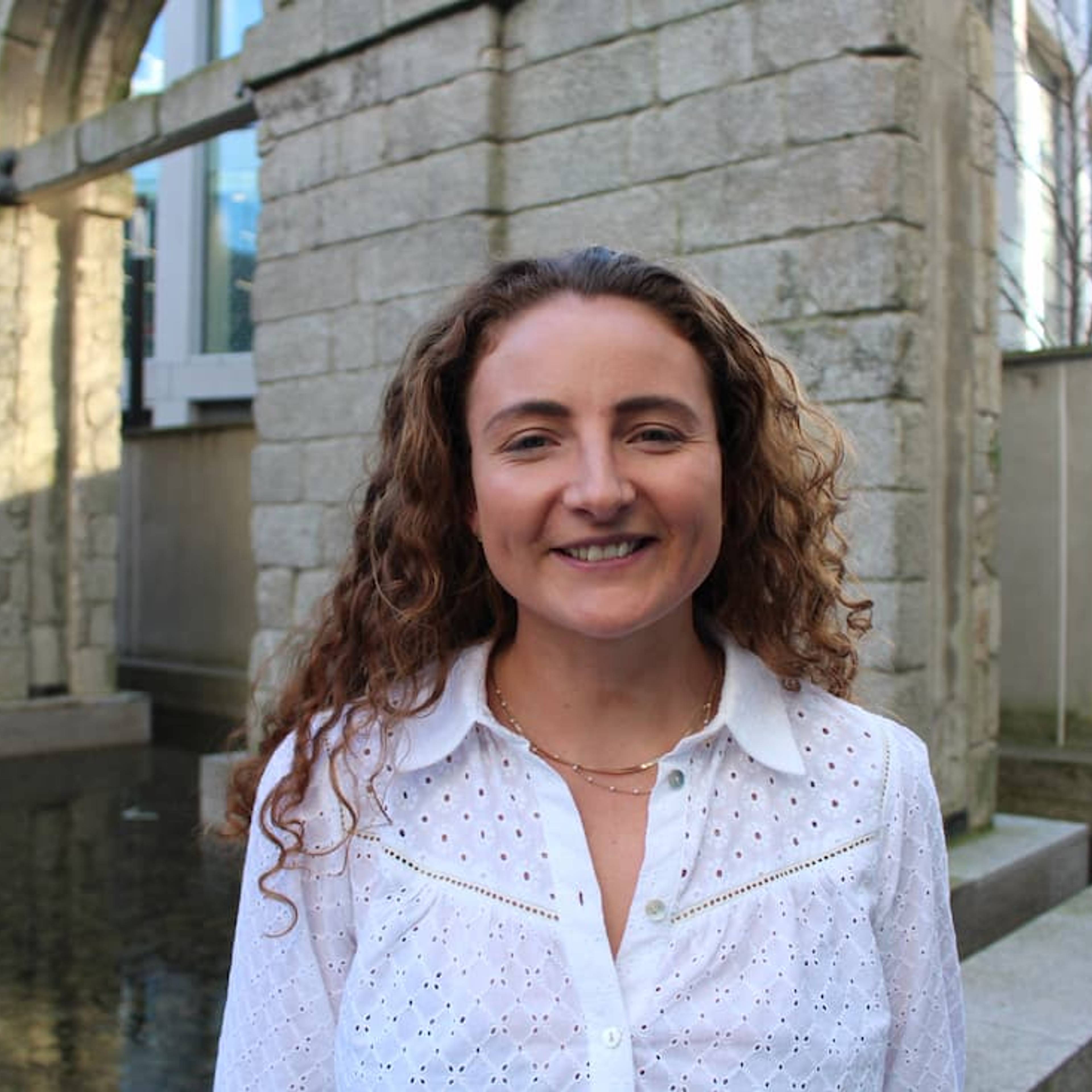
Dr Caoimhe Dempsey
Postdoctoral Research Fellow, Economic and Social Research Institute
Dr Caoimhe Dempsey is a postdoctoral researcher in Education at the Economic and Social Research Institute in Ireland. Her research examines child, family and school factors that influence children's adjustment and school experiences. Dr Dempsey's work bridges the fields of developmental and educational psychology and aims to provide tangible policy and practice implications. She holds a PhD and MRes in Developmental Psychology from the University of Cambridge and a Ba in Psychology from Trinity College Dublin. She has recently co-authored a book with Professor Claire Hughes and Dr Elian Fink called The Psychology of Starting School: An Evidence-Based Guide for Parents and Teachers.
Dr Caoimhe Dempsey
Postdoctoral Research Fellow, Economic and Social Research Institute
Related Resources
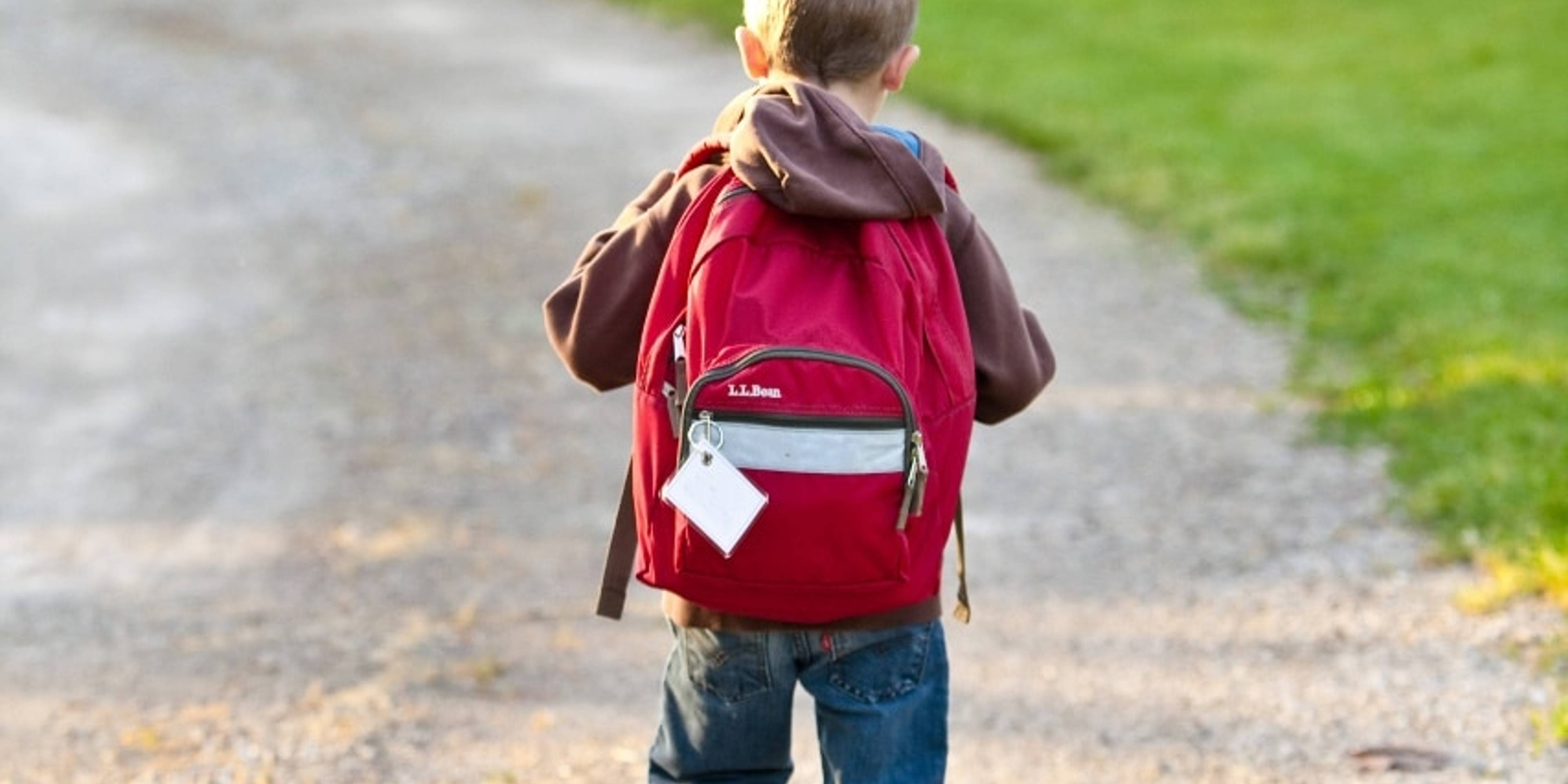
20 Books About Starting School
Scroll our research gallery

Feb 17, 2026
Children's Experiences of ADHD
While there have been many empirical studies of childhood ADHD, there have been few qualitative studies investigating first-hand accounts of the lived experiences of children. Much of the literature focuses on the perspectives of parents or teachers, rather than centring children’s voices. But what are children's thoughts, feelings and experiences? Our latest Researcher of the Month, PhD candidate Daphne Ling, has recently published findings which begin to address this research gap.

Jan 19, 2026
The power of reading: books, vocabulary and learning
Did you know that 2026 is the UK’s National Year of Reading? This long-overdue initiative reflects growing concern and renewed commitment around children’s reading and literacy. As Dr Maria Korochkina, our latest Researcher of the Month, puts it: “The ability to read opens up worlds. Reading enables children to progress into post-primary education and provides the basis for lifelong learning and prosperity into adulthood”. Frequent readers tend to have a stronger understanding of both their own and others’ emotions. They are often better able to communicate these emotions, a skill linked to higher emotional intelligence and improved mental wellbeing. Reading also encourages cause-and-effect reasoning and helps children imagine scenarios beyond the immediate moment - developing the skill of -future-thinking'. A rich vocabulary underpins learning across the school curriculum, strengthens thinking and communication skills, and predicts both academic attainment and later life outcomes. Research consistently shows that the most effective way to build vocabulary is through reading. However, learning to read well is not quick or effortless. The journey to skilled reading typically spans around ten years, requiring high-quality classroom instruction alongside sustained practice through independent reading. For many children, this process is painstaking, demanding consistent teaching, encouragement and opportunity over time. Against this backdrop, recent evidence presents a worrying picture. Fewer children are reading for pleasure than ever before. In 2024, only one in three UK children and young people aged eight to 18 reported enjoying reading in their free time. Even more strikingly, just one in five said they read daily for pleasure, the lowest level recorded since the National Literacy Trust began collecting this data in 2005. This matters because reading ability and reading enjoyment are deeply intertwined. Children who find reading effortful are far less likely to choose to read independently. Dr Korochkina’s research highlights how early reading experiences shape later habits: difficulties with phonic and morphological knowledge in the early stages of reading acquisition can have a snowball effect, reducing confidence, fluency and motivation over time. Her work also offers a powerful note of optimism. Books that children actively choose to read, including contemporary, popular texts, provide rich opportunities to develop vocabulary, particularly when children read widely. Ensuring access to a diverse range of engaging reading material, alongside strong early instruction, can play a vital role in building both reading skill and reading motivation. Fostering confident, motivated readers requires long-term commitment. It is not enough for children simply to have books available to them. They need skilled teaching, time, practice and a culture that values reading as both a skill and a pleasure.

Dec 15, 2025
Crossing the line into cybercrime
As the most digitally connected generation so far, young people today face new challenges. Our latest Researchers of the Month, Professor Davidson and Dr Farr, have found that in the last decade, an increasing number of young people (particularly young men) have committed serious cybercrime offences, particularly hacking and money laundering. Their new book, written following a large research project funded by the European Union’s Horizon 2020 research and innovation programme, seeks to understand the drivers behind this trend. It explores a range of potential factors that may lead young people to engage in risky online behaviours, and to identify effective pathways for prevention.

Nov 16, 2025
Supporting Children’s Use of AI
Children and young people are now growing up surrounded by AI, and the landscape is shifting fast. In the UK, recent data from Ofcom and Internet Matters suggests that around half of children aged 8–17 regularly use generative AI tools such as ChatGPT, Bard or Snapchat’s MyAI. Many describe these interactions as feeling like conversations with a friend. A recent report from Common Sense Media found that 33% of teens had actually chosen to talk to an AI companion instead of a real person about something important or serious. Whether children are asking voice assistants to answer their questions, relying on chatbots for bedtime stories, using learning apps for revision or engaging with large generative AI models, it’s essential to remember that most of these systems were built with adults in mind, not children. They often assume levels of attention, memory and emotional maturity that younger users simply don’t have. Even older children and teenagers, who increasingly use AI as a supportive confidante (often without adult supervision or knowledge), are still learning to navigate boundaries around trust, identity and emotion. Our latest Researcher of the Month, Dr Nomisha Kurian, wants this to change. She has developed a new framework called Developmentally Aligned Design (DAD), which outlines how AI can be built with children’s needs, vulnerabilities and strengths at its core. She also chatted to us at Tooled Up, sharing practical tips on recognising when children may be relying too heavily on AI for emotional connection, how to talk to them about healthy boundaries, and how parents and educators can help children and young people use AI tools safely, creatively and critically.

Oct 16, 2025
Algorithmised Girlhood: Teenage Girls and TikTok
As part of the early stages of her PhD study, our latest researcher of the month, Chiara Fehr, ran several focus groups about experiences of TikTok with eight 17 year old girls. Using creative methods, such as ‘TikTok show and tells’ a collaging session and a utopic mapping exercise, Chiara is exploring whether dominant narratives around growing up in a digitised world reflect the real life experiences of teens, and has summarised her findings so far in a recent article.
![“[They use devices] alllllllll day long”. What do children think about our tech use?](https://cdn.sanity.io/images/jxfh43in/content-prod-d2c/79f219275088655f59590f61ff29b6bc8b0d77f8-1100x733.jpg?w=3840&h=1920&q=70&fit=crop&crop=center&auto=format)
Sep 09, 2025
“[They use devices] alllllllll day long”. What do children think about our tech use?
We're all used to reading about children and young people's increasing use of digital tech. But what about adults' use? And what impact might our tech use have on family life? Parents today are spending an unprecedented amount of time on their devices. One study found that parents spend an average of nine hours per day engaged with screen devices. Over four hours of this is on smartphones, averaging 67 phone checks per day. Despite children's central role in family life, their voices and perspectives on the device use of the adults around them have been largely neglected in research. Along with colleagues, our latest Researcher of the Month, Professor Cara Swit, has published a fascinating study exploring the experiences and perceptions of children aged six to nine about their parents’ device use at home and its impact on them.

Aug 13, 2025
Students’ views on smartphone bans
In recent years, banning or restricting children’s access to smartphones and social media has grasped the attention of policy makers, schools and parents. A number of countries, including France, Turkey, Norway, Sweden, and regions of the US and Canada have introduced laws, policies or guidance for schools to ‘ban’ or heavily restrict the use of phones. Within Ireland, in 2024, the Minister for Education announced her intention to introduce smartphone bans in post-primary schools, whilst at the same time acknowledging that individual schools are best placed to decide on the scope and scale of restrictions for their students. Whilst these bans aim to protect children from harm, and teachers often anecdotally report seeing benefits, evaluations of existing research highlight a lack of evidence on their efficacy. At the moment, we simply don't know enough about the impact of bans. Evidence is hampered by the fact that technological developments and technology use is moving at a faster pace than research. Some studies suggest that bans are beneficial to academic outcomes and mental wellbeing. Others suggest no effects. However, many studies have methodological weaknesses, use small samples or retrospective data, and can't ascribe causal mechanisms. Our latest Researcher of the Month, Dr Megan Reynolds, has recently published a paper which explores young people's perspectives and experiences of smartphone bans in their schools. Unlike most previous research, it centres student voices in this high profile issue.

Jul 14, 2025
Do teens with mental health conditions use social media differently than their peers?
As Luisa Fassi, our new Researcher of the Month, comments, "The link between social media use and youth mental health is hotly debated, but hardly any studies look at young people already struggling with clinical-level mental health symptoms". In fact, Luisa's large systematic review and meta-analysis found that only 11% of papers published on the topic since 2007 focused on young people with clinical conditions. Her review also showed that the data used to evidence mental health conditions in these existing studies is not always strong or especially robust. Many report links between social media and mental health on the basis of short self-report questionnaires, where young people are asked about symptoms. Whilst this wasn't found as part of Luisa's review, it is also the case that very few papers in the field differentiate between different mental health conditions, or examine different symptoms or conditions (such as anxiety, ADHD or eating disorders) in isolation. To address this research gap, Luisa and colleagues have recently published a fascinating and nuanced paper. It analyses both quantitative and qualitative dimensions of social media use from a nationally representative survey of 3,340 teens in the UK aged between 11 and 19 years old, which was conducted by NHS Digital in 2017. Rather than gathering mental health data from self-report questionnaires, the young people in the survey underwent a full clinical screening, which included interviews with the young people, their parents and teachers. Information about social media use came from questionnaires completed by participants. They were not asked about specific platforms. Luisa used this data to gather novel insights into how social media and mental health are related in teens who both meet and do not meet diagnostic criteria for a wide range of mental health conditions. The study does not establish any causal links, but it does reveals a range of differences between young people with and without mental health conditions when it comes to social media.

Jun 17, 2025
Navigating the feed: younger adolescents' reflections on algorithmically curated social media
Our latest researcher of the month, Roxana Pomplun, has investigated the interactions, experiences and perceptions of younger adolescents, aged 11, 12, and 13, with algorithmically curated platforms such as TikTok, YouTube Shorts, Spotlight on Snapchat and Reels on Instagram. These kinds of platforms use algorithms to personalise and tailor feeds, harnessing user data to suggest content that the individual is most likely to be interested in and engage with. As such, young people have little control over what they are seeing in their feeds. Tech companies are not yet required to be transparent about the data that they are collecting, but it tends to include demographic information such as age, gender or location, along with use patterns. Whilst these sites dominate the digital lives of tweens and teens, until now they have received little dedicated research attention, particularly in relation to younger users, with most existing studies focusing on older teens. Whilst we know that most social media platforms have age limits of 13, we also know that many younger children are active users, particularly of algorithmically curated platforms like TikTok and YouTube Shorts. Given that early adolescence is a life phase marked by critical neurological development, identity development and heightened susceptibility to mental health issues, deepening our understanding of how younger adolescents engage with social media is vital. Roxana's qualitative research, where a group of young people eloquently explore their own experiences and perceptions, broadens our knowledge of social media use within an age group that appears increasingly aware of the digital influences shaping their online experiences, yet which is still in need of support to fully navigate these ecosystems.

May 15, 2025
Looking beyond smartphone bans
Over the last year or so, there has been a surge in public concern around smartphones and social media. Banning or restricting children’s access to smartphones and social media has grasped the attention of policy makers, schools and parents. A number of countries, including France, Turkey, Norway, Sweden, and regions of the US and Canada have introduced laws, policies or guidance for schools to ‘ban’ or heavily restrict the use of phones. In the UK, there are proposals to raise the age of ‘internet adulthood’ from 13 to 16, and to ban smartphones in schools. The third reading of a private members’ bill on this topic will be heard in parliament in July. Whilst these bans aim to protect children from harm, recent studies highlight a lack of evidence on their efficacy. Along with a team of international experts, our latest Researcher of the Month, Professor Victoria Goodyear, argues that, in isolation, banning smartphone and social media access fails to equip children for healthy use of technology. She suggests that there is a need to shift debates, policies and practices away from a sole focus on restricting smartphone and social media access, toward an emphasis on nurturing children’s digital skills for healthy technology use, and a rights-respecting approach which is underpinned by age-appropriate design and education.

